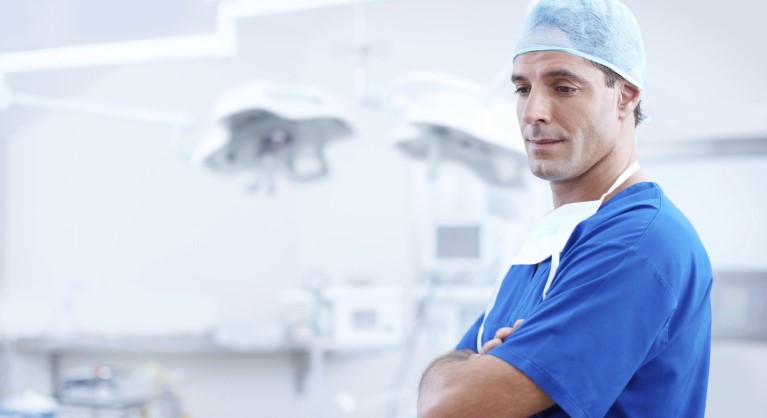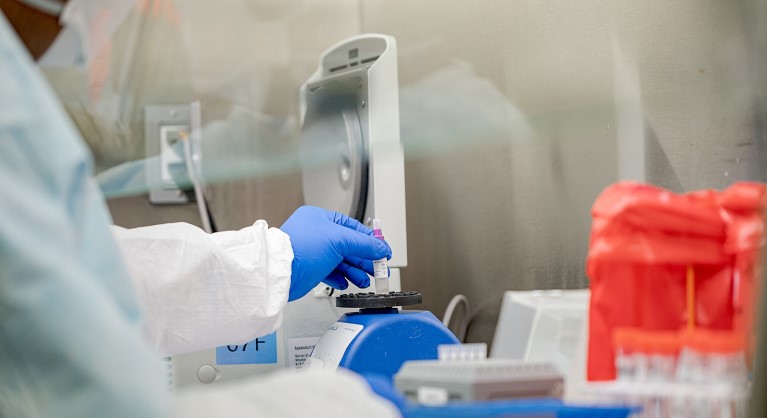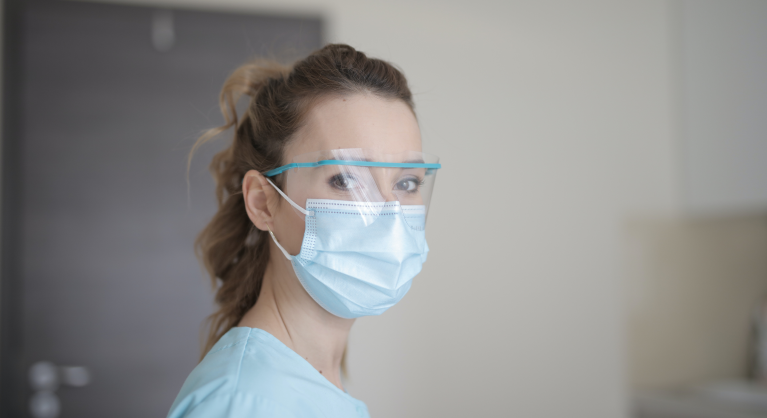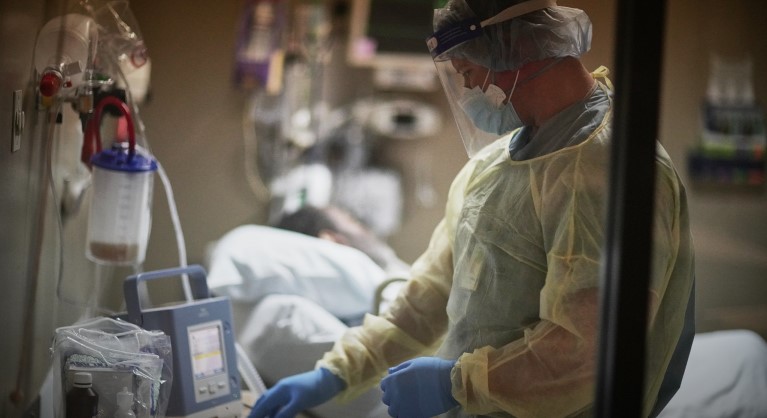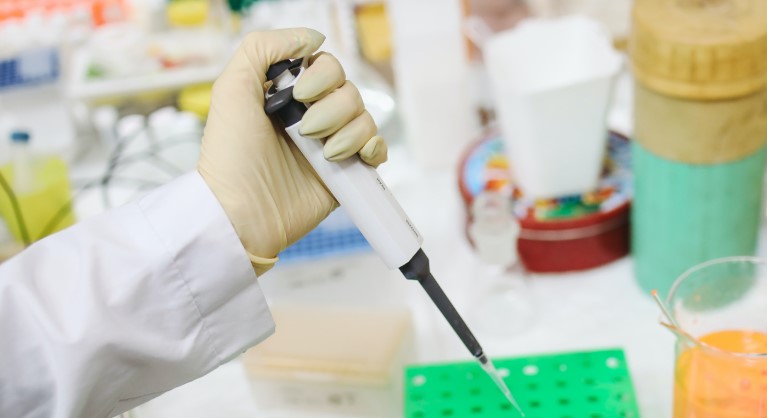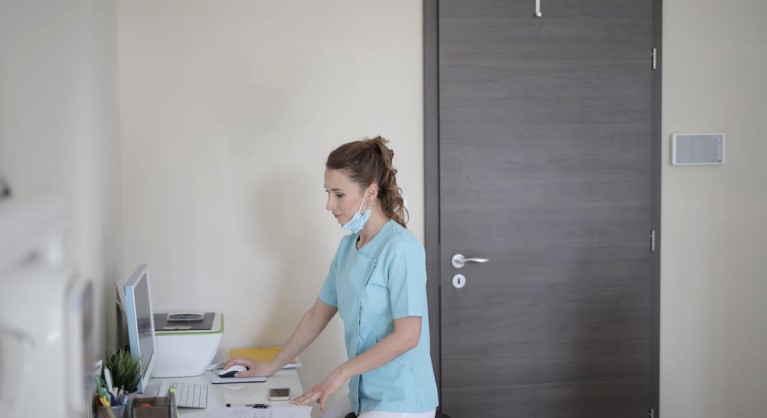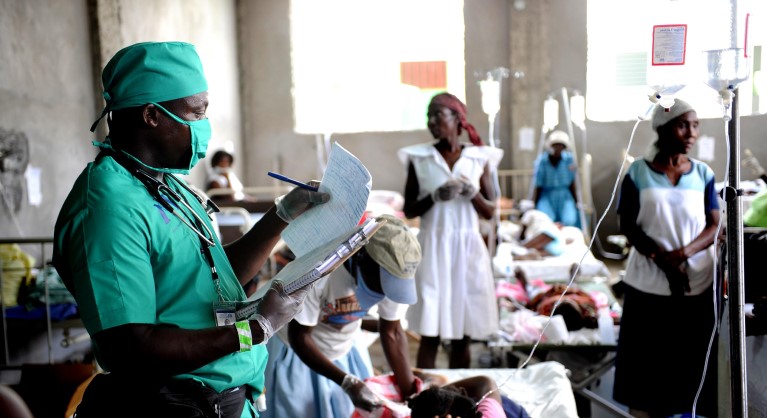Clinical research and supporting the NHS
Ventilators, visors, volunteers and testing
Throughout the pandemic, our academics and students have been working tirelessly to support the battle against coronavirus. From making visors, to working to develop an alternative model of ventilator, to making more reagents for COVID-19 testing and much more, discover how our staff and students helped respond to pandemic.
Creating a doctors app with up-to-date reliable COVID-19 information
A team of Warwick researchers and hospital clinicians have created an app for health professionals on the frontline of the fight against the pandemic, giving them a guide through the mass of information on the virus. It is designed to act as a tool for doctors, GPs, nurses and other health professionals caring patients with COVID-19.
Alleviating the COVID-19 testing bottleneck with DIY reagents
Our Medical School researchers have developed a way to create more crucial reagents for use in COVID-19 testing. Demand for reagents used in COVID-19 tests created some supply issues in the UK, so our researchers decided to make more of the enzymes needed to produce reagents that could then be used in commercially available testing kits.
Warwick researchers, to map COVID-19 effects and treatments in patients' blood
Our researchers are working to identify how coronavirus molecules are structured in patient’s blood by measuring the molecules to determine what they are and where they are. Professor Peter O’Connor is part of a collaboration of scientists working on the project, which will help inform testing, treatment, isolation requirements and therapeutic programmes.
Developing a tool for rapid detection of coronavirus
There is an urgent need for new and accurate COVID-19 diagnostics. Our researchers are helping develop a new diagnostic tool to function without any need for training or complex infrastructure. The tool is being created in collaboration with Iceni Diagnostics, and may allow for on-the-spot coronavirus detection. Appearing similar to a pregnancy test, it uses sugars to identify the virus.
The early pandemic paradox
Warwick research shows fewer UK deaths were registered in the first four months from December 2019 to March 2020 compared with the previous five years. Could the lower death rate during the early stages of the pandemic be attributed to enforced social distancing and government hygiene mandates - leading to a reduction in the spread of non-Covid infectious diseases?
National clinical trial for COVID-19 patients
Our researchers are helping deliver a clinical trial to find effective alternative solutions for patients hospitalised with COVID-19 in order to reduce the need for ventilator treatment. The RECOVERY-RS Respiratory Support trial will compare standard care, intubation and invasive ventilation with non-invasive treatments. This will help determine effective methods for reducing the need for invasive ventilation - leading to improved patient outcomes.
The opportunities and challenges of existing drugs
Before an effective vaccine is rolled out, we must provide supportive treatment to the most severely affected patients and look into existing drugs to treat COVID-19. Repurposing existing drugs presents our only hope in the short term, but is not without challenges. Many drugs are currently being used and tested in over trials, including hydroxychloroquine.
Coronavirus brings dawn of digital healthcare
How can technology help deliver healthcare in a time of crisis? The pandemic could herald the start of more digitised healthcare. New ways of remote and digital health working can enhance GP communication and improve healthcare by better managing the clinical load of frontline staff. Professor Theo Arvanitis explores the important role of digital healthcare in a time of coronavirus.
Could COVID-19 prompt the start of remote consulting in low & middle income countries?
Healthcare consultations by mobile phone and apps can help reach more people whilst reducing the need for physical contact and PPE. Researchers at Warwick and King’s College London have developed a training course with researchers in Tanzania, designed to equip medical staff with the knowledge and skills to permanently integrate remote consulting into their local health service.


